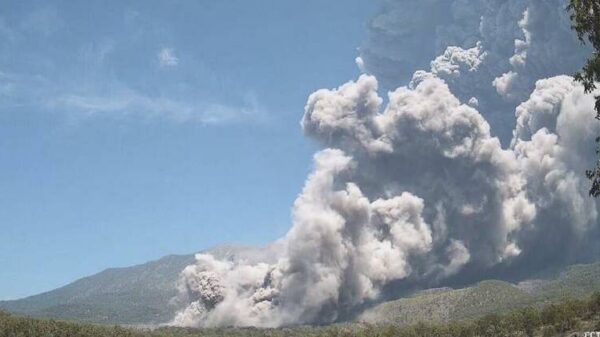UPDATE: Australia’s Prime Minister Anthony Albanese has returned from a controversial six-day tour of China, sparking urgent debates over the implications for Australian foreign policy. Critics are questioning whether taxpayer dollars were wasted or if too many concessions were made without proper democratic oversight.
During the tour, Albanese touted the importance of “people-to-people links” with the 1.4 million strong Chinese-Australian diaspora, emphasizing cooperation in sectors like healthcare and green energy. However, many are alarmed by the lack of transparency, as the Prime Minister shared only staged photographs that some describe as propaganda aimed at both the Australian public and the Chinese populace.
In an interview with the ABC, Albanese stated, “If we are going to address the emissions reduction that the globe needs, steel decarbonization has to be a part of that.” His comments come amid growing skepticism about China’s environmental record, as it remains one of the world’s most polluted nations, further complicating the narrative of a “green” partnership.
Reactions to the visit have varied widely. The Australian labeled Albanese as “Mr. Inbetween,” while Sky News Australia suggested he is “in Beijing’s pocket.” The South China Morning Post ominously reported that the trip signifies a “stiffening of Canberra’s spine” against U.S. pressure, raising alarms about Australia’s geopolitical positioning.
Amidst this backdrop, Albanese has emphasized healthcare collaboration, stating, “Australia is a world leader in medical research,” and highlighting partnerships with Chinese scientists. Yet, many Australians remain wary, especially given China’s controversial handling of the COVID-19 pandemic and its history of quality assurance lapses in the medical field.
Critics argue that entangling Australia’s healthcare with China could pose risks, particularly as tensions rise over Taiwan, where a 2027 invasion is speculated. Concerns about China’s ambitions in biological sciences and genetic engineering, as detailed in a 2023 Pentagon report, add to the urgency of the situation.
Albanese’s strategy appears aimed at signaling a departure from U.S. influence, a move viewed as reckless by many. Rowan Dean, Editor-in-Chief of Spectator Australia, condemned the Prime Minister’s tour, stating, “We are now a vassal state to China.” His disparaging remarks highlight the growing fear that Australia may be compromising its sovereignty.
As Australia grapples with the fallout from Albanese’s China visit, the immediate future remains uncertain. Will this tour reshape Australia’s global partnerships or deepen reliance on China? Observers are closely monitoring the government’s next moves on this critical front.
The implications of Albanese’s decisions will resonate far beyond diplomacy, potentially affecting the daily lives of Australians. As discussions about foreign alliances intensify, the need for transparency and accountability in government dealings has never been more pressing.
Stay tuned for further updates as this story develops.



























































